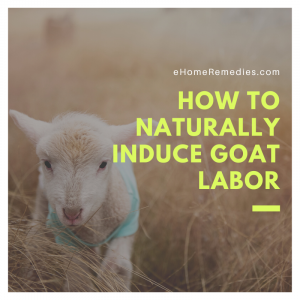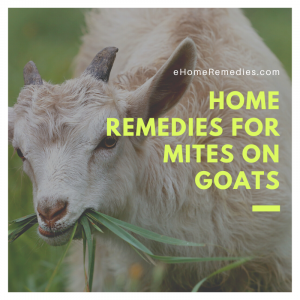If you’re considering how to deworm goats naturally, here are some ideas. Goats naturally carry worms, but the problem only arises when certain types invade and their populations “bloom.” This can happen because your goats have poor health or pasture conditions that are too wet. You can also use herbal or homeopathic remedies. Read on to learn how to deworm goats naturally and safely. There are several ways to deworm your goats, including avoiding pasture.
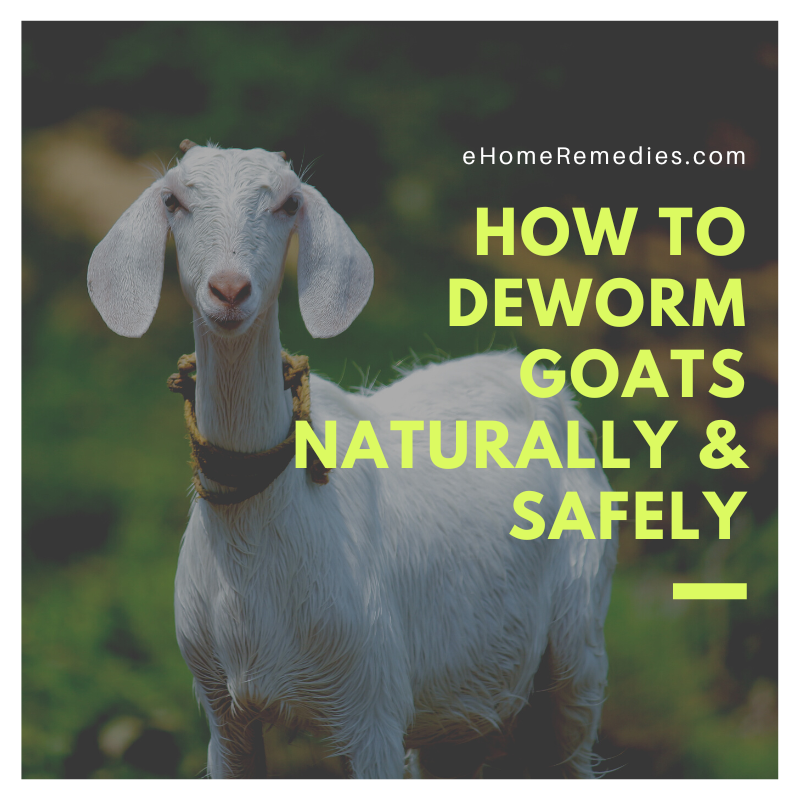
Herbal dewormers
While all goats carry some form of the parasite, they are more likely to become an issue if one or more of them invades the body and their population begins to “bloom.” In particular, wet pasture conditions and stress can contribute to this situation. Once a goat has been infected, it is important to deworm it regularly. Herbal dewormers for goats are natural products that are safe for goats and are effective for this type of parasite.
Herbal dewormers can be used for goats and do not contain any chemical ingredients, so they’re a safer alternative to synthetic products. A veterinarian will perform a fecal test to see how many worms are present. If the numbers aren’t incredibly high, a goat will likely receive a clean bill of health. To make sure that your goat is healthy, read this article for more information.
Chemical dewormers can only kill the worms you can see. Goats spend a large part of their day on the ground and in their feces. The feces will always be present and the chemical dewormers won’t completely rid your goat of parasites. So, herbal dewormers for goats are often recommended along with chemical dewormers. However, the chemicals should only be used twice a year, so natural dewormers should be given once or twice per month.
Herbal dewormers for goats are often cheaper than anthelmintic treatments. But many producers are skeptical about their effectiveness. One study, published in 2012, showed that Hoegger’s Herbal Wormer was not an effective dewormer, and neither was the fecal egg count. However, herbal dewormers are often used in combination with other means of parasite control, such as pasture rotation. This can be a viable alternative for reducing chemical costs.
The researchers concluded that despite the high cost of commercial dewormers, herbs are less expensive than chemical products. However, herbicides should be used in addition to chemical dewormers. Herbal dewormers for goats should be used in conjunction with other integrated parasite management techniques. This way, you can reduce the overall cost of deworming your goats. These products are safe for goats and sheep and can save you time.
There is a considerable amount of information about the use of plant materials for de-worming goats in the Nordic countries. However, most of the reports are anecdotal, and there is little scientific evidence that they are effective. The use of natural products for de-worming purposes is growing in popularity in the western world, due to threats of multi-resistant organisms and diminishing public perceptions of synthetic chemicals.
Homeopathic remedies
You may have heard of homeopathic remedies to deworm goats, but did you know that they can also prevent a disease? You can use these herbs to deworm goats naturally. These herbs have many medicinal qualities. When used for deworming, they will help reduce illnesses and diseases in your goat herd. Your goats will have better milk production, be more fertile, and look and feel better. They will also spend more energy on producing meat rather than on health problems.
Herbal treatments are a great choice for goats, but you should be sure to follow label instructions closely. Many herb dewormers have harmful side effects. You should also keep in mind that herbal remedies do not work as effectively as chemical products. Always consult a veterinarian first before using herbal treatments on your goats. They may not be safe for pregnant goats. And do not overdo it! And remember that some herbal remedies are not recommended for pregnant goats.
If you aren’t sure which herbs to choose, try the following homeopathic remedies. Choose herbs that are safe for goats and easy to use. They can be purchased online and even used at home. Natural herbs are often the best choices. They’re also less expensive than pharmaceutical products, and you can even grow them yourself. A good herb gardener will also know exactly what goats tolerate and what doesn’t.
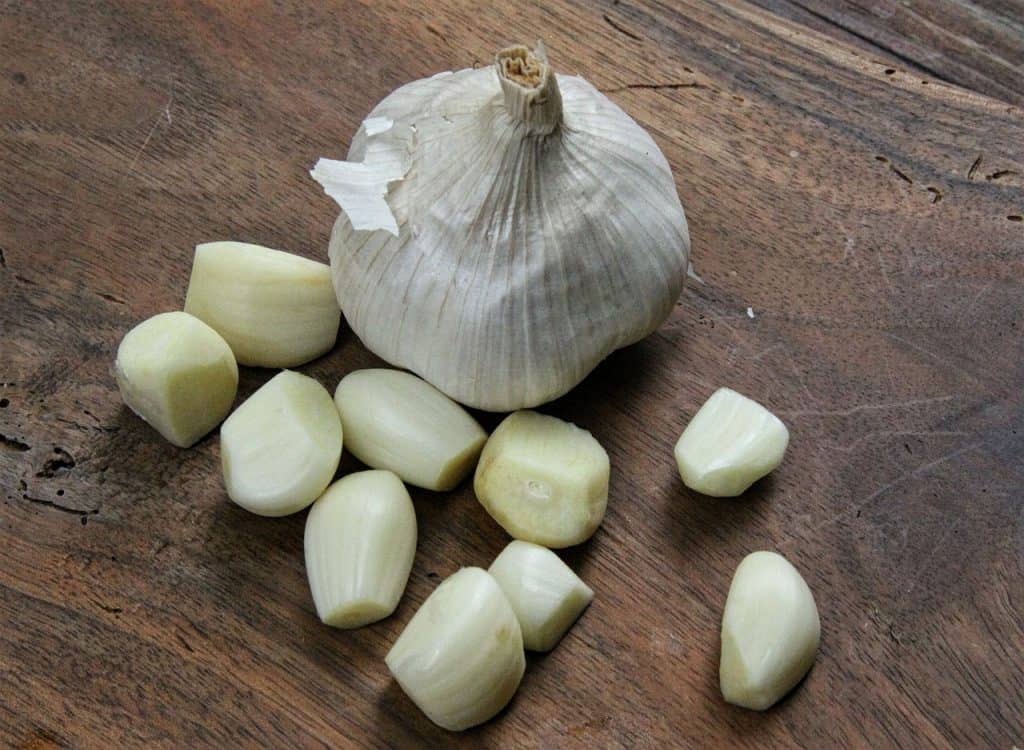
Garlic is a powerful plant dewormer. It’s active against Ascaris, Enterobius, and lungworm. However, you must ensure that you use it correctly. Garlic does not prevent the production of eggs, but it does prevent the larvae from developing. Avicenne recommended garlic as an additive. Other plant-derived substances are also incorporated into homeopathic dewormers. The medicinal properties of garlic come from its high sulfur content.
Clay can also help to remove toxins from a goat’s body. Its negative charge attracts positively charged deworming chemicals. By binding with them, clay will carry them out of the goat’s body. In addition to clay, zeolite is another helpful detox herb. It has a negative charge and is small enough to enter the bloodstream. A cross-reference chart will help you choose the right detox herb for your goat.
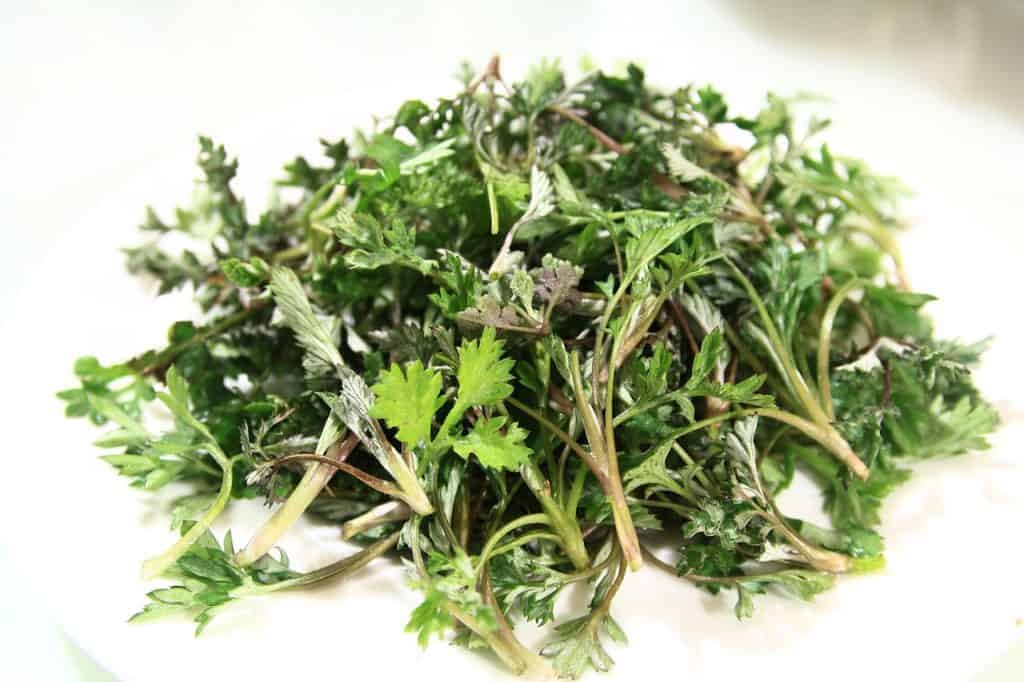
Wormwood is another common herbal dewormer. The dried leaves are a good source of deworming properties. Wormwood plants are common in North Africa. They can be grown along pastures. In addition to wormwood, several other herbs are also effective in deworming goats. These herbs have several uses and are safe for goats. The dried leaves are an excellent way to protect your goats from parasites and insects.
Wormwood is a well-known anti-parasitic herb, but it should be avoided for pregnant animals. Wormwood can also affect the liver, kidneys, and nervous system. Herbal wormers are not recommended for daily use, but if you are using them regularly, you should consult a veterinarian. This is especially important if you want to live a natural goat herding lifestyle.
Avoiding grazing pasture
If you are considering avoiding grazing pasture to deworm goats, you may be wondering how to do it without introducing your goats to any new conditions. Thankfully, the process of preventing internal parasites in goats is easier than you may think. It just takes a little bit of planning and varying factors to ensure that you don’t introduce your goats to a new pasture with a high parasite risk.
For example, sheep and goats don’t share the same gastrointestinal parasites as cattle and horses. So, they can’t get the barber pole worm larvae and can’t cause the problem in humans. Instead, sheep and goats prefer to graze taller grass first and the rest is eaten by cattle. Besides, sheep, alpacas, llamas, and cattle can be susceptible to goat worms.
Rotating pasture is another effective method of deworming goats. Rotate the pasture after every six to seven months to minimize worm load. For small acreages, however, this isn’t always possible. Instead, you can simply carve up the pasture into units and rotate it. Rotating pasture will help prevent worms from infesting the entire acreage. This is because mature worms lay their eggs in the current pasture and then die.
The best way to deworm your goats naturally is to use a dedicated paddock with high-tannin-producing plants and rotate it every few months during the grazing season. If you’re worried about the cost, consider creating a dedicated deworming paddock instead. Then, when your goats eat the new pasture, you’ll have a healthy goat that won’t be prone to internal parasites.
The best time to move livestock is three to four days before the eggs hatch and turn into the infective larval stage. Because parasite larvae have a short lifespan, producers should try to rotate their livestock within a week or two to stay ahead of the life cycle of the parasites. By subdividing the pasture and rotating animals within six days, you’ll be able to stay one step ahead of the parasite life cycle.
You’ll also need to avoid re-grazing a previously grazed pasture. Because goats grow so fast, they tend to ignore certain areas and overgraze others. Goats will eat the young and tender grass while avoiding long, tough, and infected grass. While it is true that goats tend to prefer short grass, it’s also likely to contain larvae and other infective organisms.
Using a natural anthelmintic, such as ivermectin, can also be effective. Plants with tannins can help reduce parasite burdens in animals. Many species grow wild, including Artemisia herba-alba. It’s also possible to grow wormwood plants along pastures. In addition to this, goats can also graze with their heads up.

